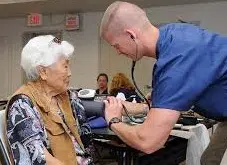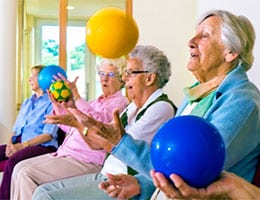 The concept of geriatrics refers to the specialization of medicine focused on diseases of old age . This medical branch is dedicated to diagnosing, treating, curing and preventing disorders that affect individuals in old age.
The concept of geriatrics refers to the specialization of medicine focused on diseases of old age . This medical branch is dedicated to diagnosing, treating, curing and preventing disorders that affect individuals in old age.
Geriatrics is linked to gerontology , which is the science aimed at problems of old age, whether economic, social, psychological or other types. In the specific case of geriatrics, it focuses on the resolution of health problems, especially in the hospital sector.
Generally, geriatrics is aimed at patients over 65 years of age , which is when the so-called third age begins, with a risk of dependency and multiple pathologies that include a mental disorder.
The purpose of geriatrics is for the patient to achieve the highest possible level of independence and autonomy so that they can have a self-sufficient life. The aim is for the elderly to be able to remain in their usual environment, living at home.
The practice of geriatrics usually takes place in hospitals and nursing homes. It can occur in emergency services, inpatients or in outpatient clinics.
While pediatricians focus on caring for children, geriatrics experts focus on the elderly. That is why they specialize in diseases and disorders characteristic of old age, such as osteoporosis, urinary incontinence and dementia. Correct patient care usually requires direct contact with their main caregiver and family to achieve support that helps preserve mental and physical functionality and contributes to reducing the progression of progressive deterioration typical of age.
 Perhaps one of the similarities that exists between pediatrics and geriatrics is the difficulty that often entails dealing with patients: some children are too restless or easily impressed and do not allow doctors to do their work calmly; The elderly, on the other hand, can become very hostile toward their therapists. In all cases, health professionals should never allow these whims to interfere with their work, but rather should place themselves above the situation.
Perhaps one of the similarities that exists between pediatrics and geriatrics is the difficulty that often entails dealing with patients: some children are too restless or easily impressed and do not allow doctors to do their work calmly; The elderly, on the other hand, can become very hostile toward their therapists. In all cases, health professionals should never allow these whims to interfere with their work, but rather should place themselves above the situation.
In the field of geriatrics, there are dozens of sad stories of abuse of the elderly by medical and care staff. Since many patients have very reduced, or even no, mobility, they are in a state of almost absolute vulnerability, which gives rise to many reprehensible actions. These cases stain the reputation of a branch of medicine that, in principle, only aims to do good for a portion of society.
The cases of abuse that occur in geriatric centers are not their characteristic feature, although the media has made it almost impossible not to associate them. At this point, fiction has also played a very important role: nursing homes are often presented as spaces in which therapists mistreat the elderly and they try to escape or take revenge in some way; This can be shown both tragically and humorously, contributing to the negative image of these centers .
Another of the myths, so to speak, that revolve around geriatrics is that adults abandon their parents in geriatric hospitals when the latter reach old age to ignore them, so as not to have to take care of them. Although there are many cases in which this is true, geriatrics is in principle a complement to the care of the elderly , a service that helps children take care of their parents appropriately.
